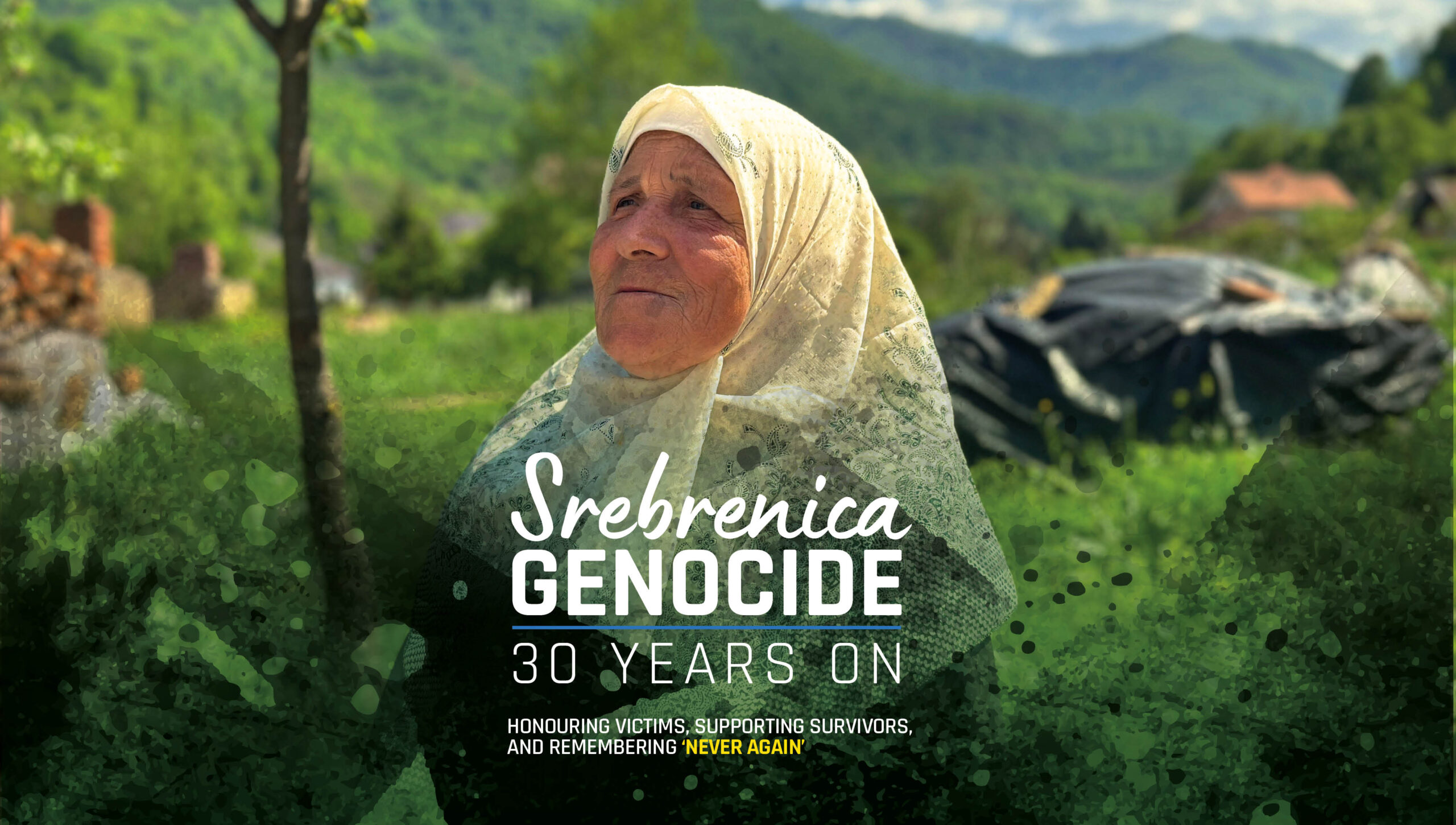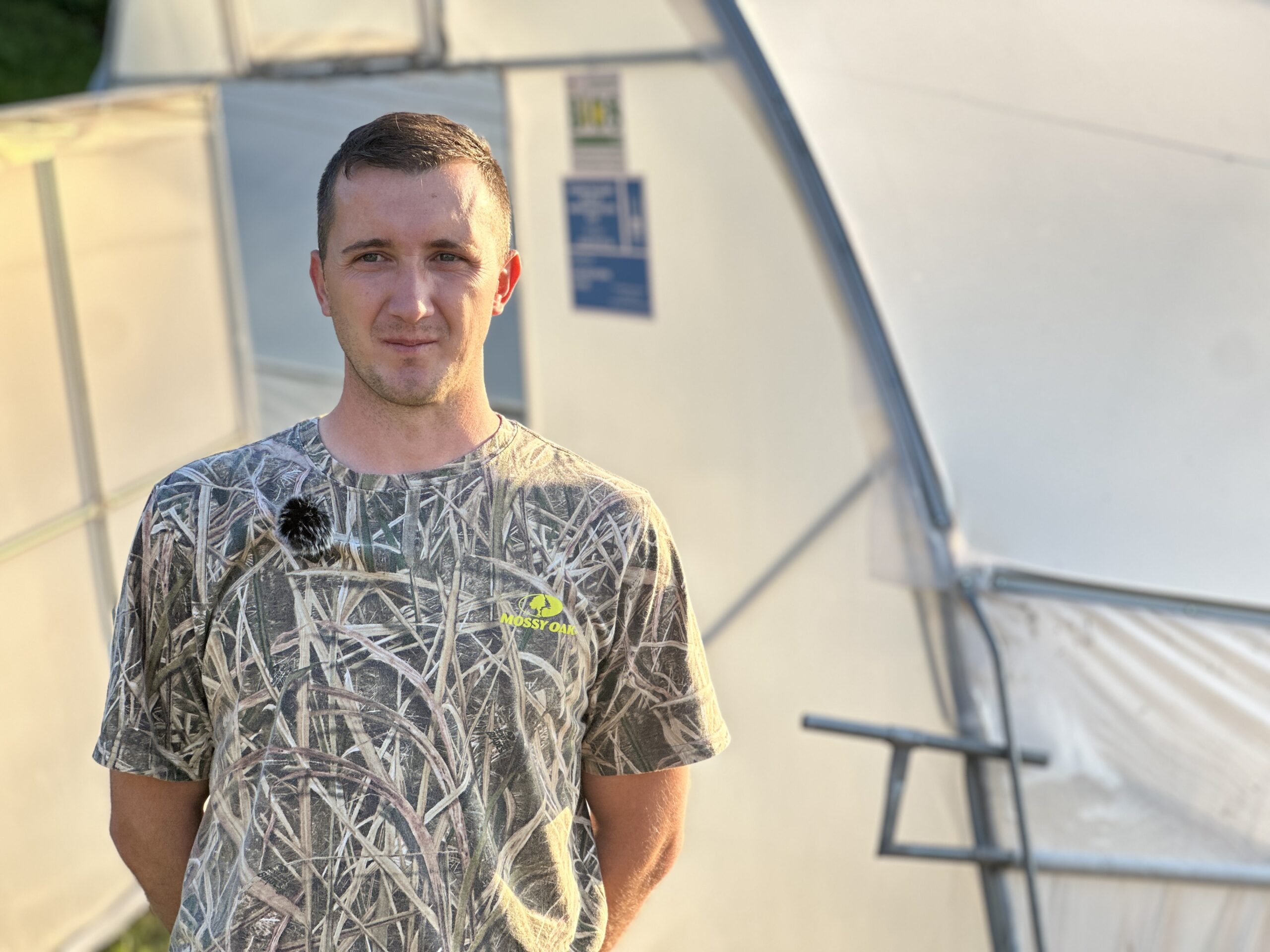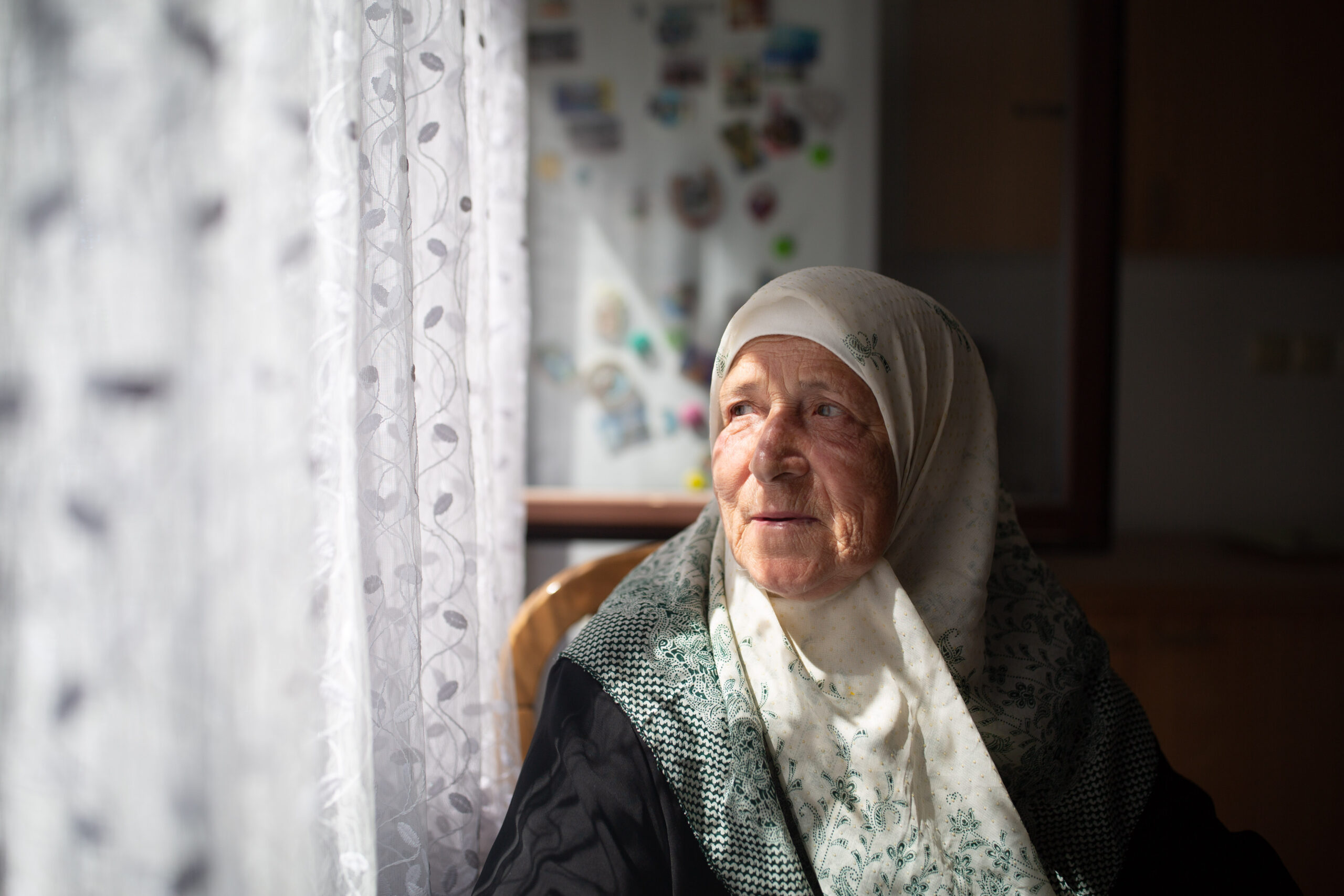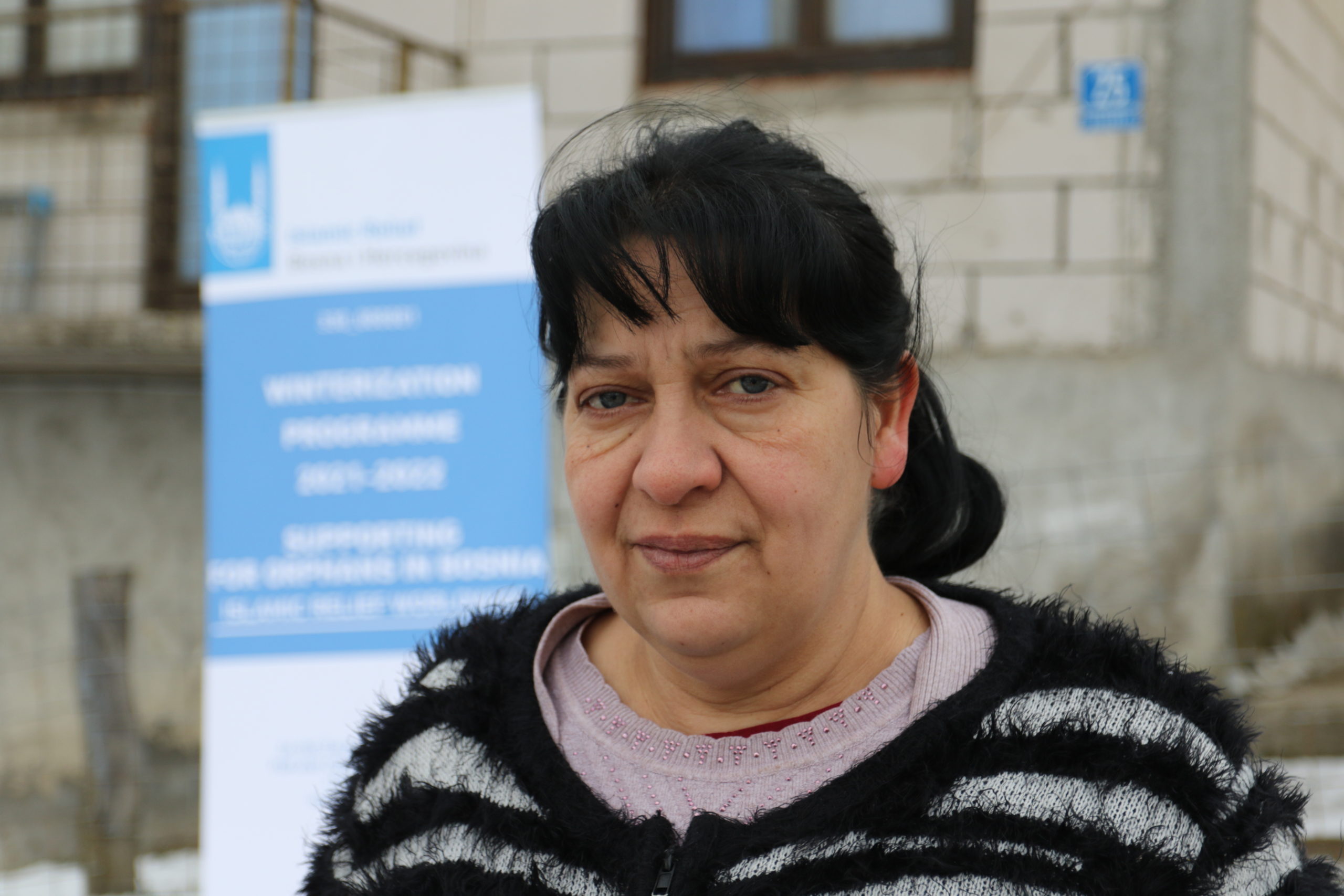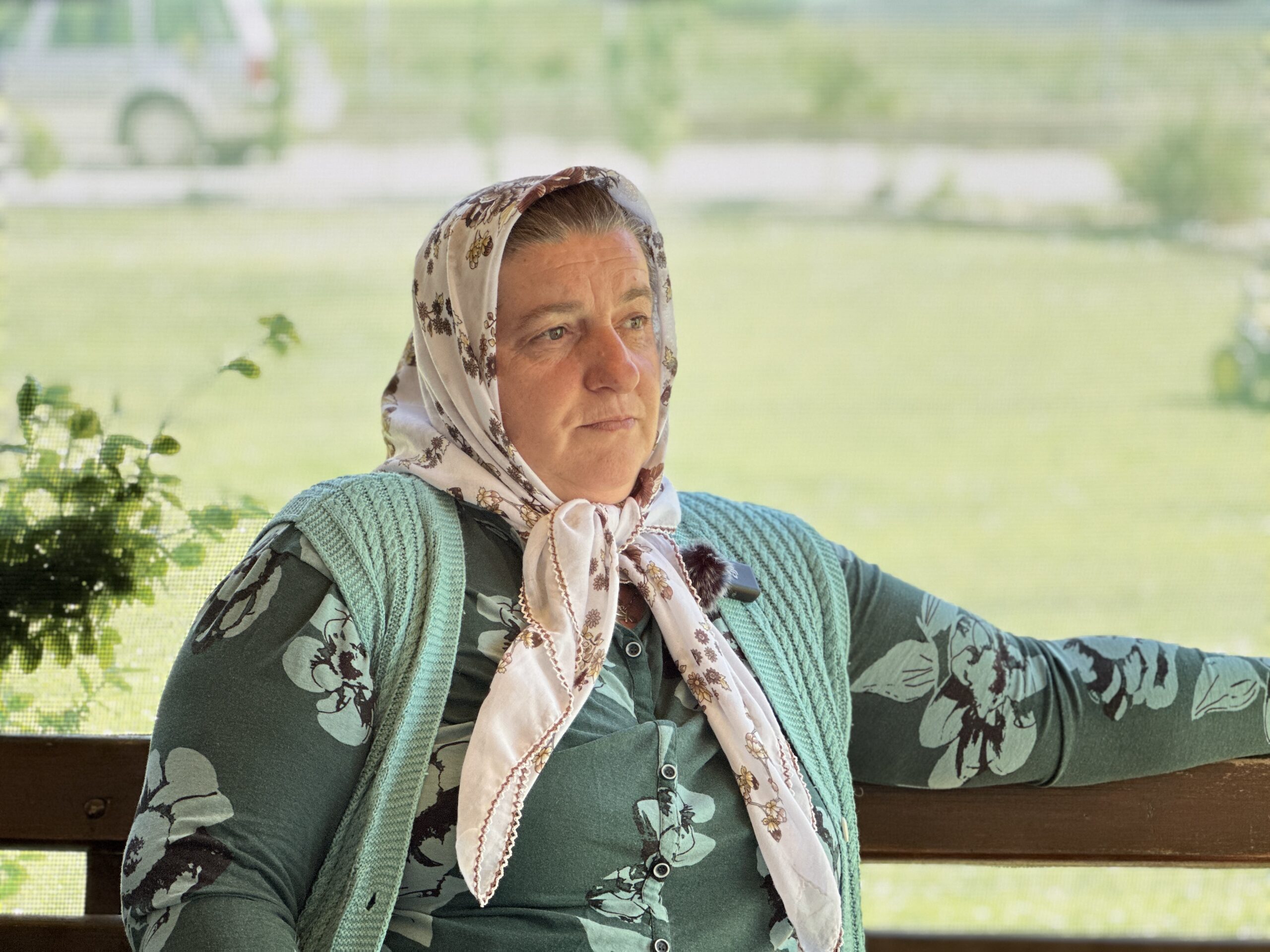
07.10.25
Remembering Srebrenica: ‘We tried to flee, but they shot my stepmother’
Umija was just a teenager when the Bosnian War broke out. Her childhood before then, like those of so many living in the rural areas around Srebrenica, was shaped by the gruelling routines of working the land.
“I didn’t know what childhood was. I spent all my time working, digging, planting. [Then] I only finished 4 grades of primary school [before] I had to go to work… girls weren’t really meant to get an education, just work and nothing else… that was my childhood.”
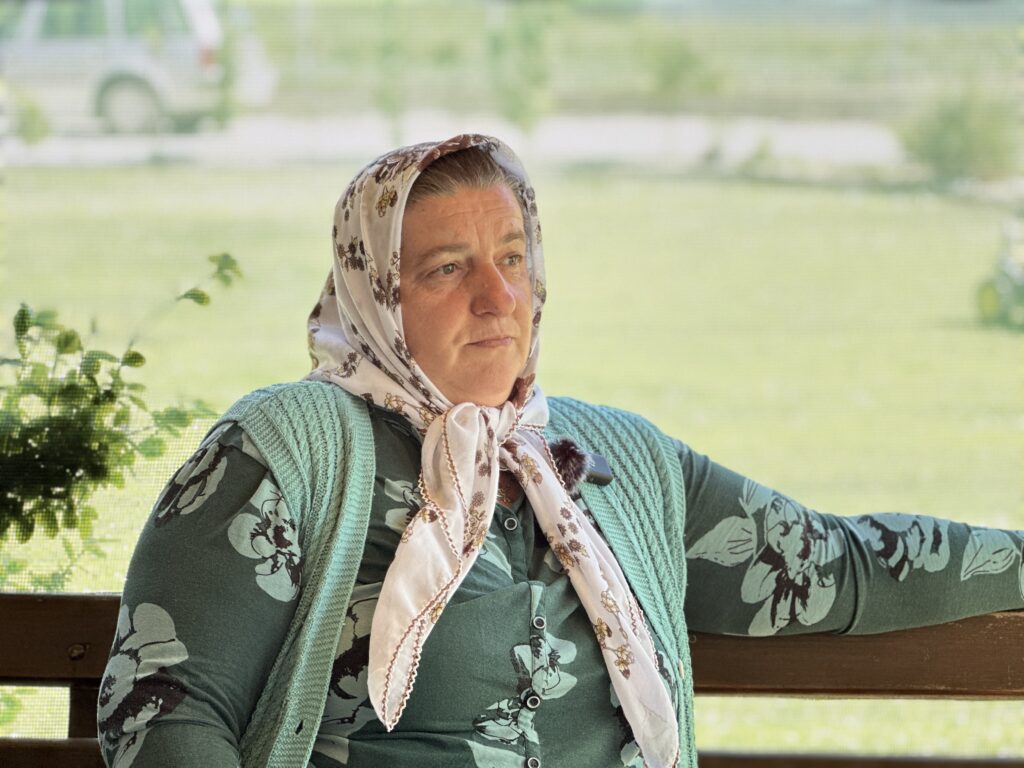
The start of the Bosnian War
When the war started in 1992, Umija was living with her father, stepmother and 3 stepsiblings. One cold February night, while her father was in the hills searching for food, neighbours warned the family that their town would soon fall.
The following morning, Umija, her stepmother and stepsiblings fled. But during their journey, the group was spotted. Shots fired in their direction.
“They wounded my stepmother. She was carrying my brother Adem with her. She put Adem down on the ground then lay down, covering her leg.”
With her infant sister, Mejra, on her back, Umija began travelling home along the river so as not to be spotted. On the way, the girls became separated from their other brother, Saban.
“Grenades were falling all around us, like candy or beans falling [from the sky]. My sister was wounded.”
After arriving back to her village, Umija got some men to help retrieve her stepmother’s body, later reuniting with Saban and Adem.
“I found the children – a woman had taken them in and given them food. We gathered the kids and in the evening we headed home. When we got home that night, we brought my stepmother’s body into the house. At midnight, we were digging the grave to bury her – not even up at the cemetery, but just down from the house. We wrapped her in a blanket and dug the grave to lay her to rest. My father came back and asked where we had been.”
‘Step by step, we lived on’
Umija’s life had changed in an instant. Soon, her father remarried. And she was left to care for her younger stepsiblings amid the struggles of wartime.
“Imagine, you’re 19 with 3 children, going out in the world. People thought those were my children.
“You just think about how to survive. Nothing ever changed for me, not once – it’s always been a struggle to survive,” Umija remembers. “Every day someone dies, and you run, not knowing when a bullet might hit you – hit me or the children – you never know when.
“[During the war if] there was shooting, you’d run, but you still went to work. You had to. You still needed to eat and drink.
“I worked while caring for the children, no time for fun. I worked, cared for the children, and struggled. There was no pension, no income, nothing… Relatives were telling me to send the children out to beg. I said no, put the hoe on my shoulder and went to work in the fields digging for beans, potatoes, for whatever I could [get].”
Life in Srebrenica during war
Eventually, after a year, the toll of caring for her stepsiblings became too much. Umija’s father was among the thousands of men and boys killed at Srebrenica. Without him, her future looked more uncertain than ever.
“When the war ended, I put the children in an orphanage. I felt sorry, my heart still hurt for the children…
“Then I came to Srebrenik and got married. It was a different world here, not like my own. So, step by step, we lived on.”
Umija’s husband worked as a day labourer and, with the income made from a cow owned by her mother-in-law, Umija was able to make ends meet.
The family expanded, with Umija having a daughter and then a son. The hardship when her mother-in-law and her husband passed away was tempered by the joy of her daughter’s marriage and the births of 2 grandchildren.
Her stepsiblings, now adults too, were later given land by the state. They married and had families of their own, reconnecting with Umija later in life.
“Mashallah, we get along and they visit me.”
Rewinding the tape
The war had been over for more than a decade when Umija received the news that the partial remains of her uncle and father had been found.
“They were… found in 3 mass graves – not in 1 – they were tossed around into this grave, then this one and they were very far apart, the graves. That’s why their remains weren’t completely found,” she says.
In the aftermath of the war, the bodies of Srebrenica victims were moved to other graves – and sometimes again and again – in a bid to hide evidence of the mass murder. Today, 94 mass graves have been discovered around Srebrenica, with painstaking efforts still ongoing to identify the remains and return them to their loved ones.
Umija’s uncle was finally given a funeral in 2009, and she was able to lay her father to rest the following year. This has brought her some comfort, but the trauma lingers.
“All of that hits hard to this day. When I rewind the tape, everything hits me, and I feel depressed. I pray it doesn’t happen anywhere [else].”
The scale of loss in Umija’s family was enormous, with the deaths of her father, stepmother and uncle leaving 11 children orphaned. Another aunt, who also died during the war, left behind 3 children, including a 4-month-old baby. Along with the children, the adults who survived felt the loss of their loved ones deeply.
“My grandfather survived. He buried all 3 of his children and lived until 2011,” Umija says.
Hard-won stability after War in Srebrenica
Now 52, Umija lives with her son, who, as a child, was supported through Islamic Relief’s Orphan Sponsorship Program, and continues to make a living from farming, while receiving her late husband’s small pension. From 4 sheep and a ram provided by Islamic Relief, Umija has grown a flock of 15, selling the males and keeping the females to lamb.
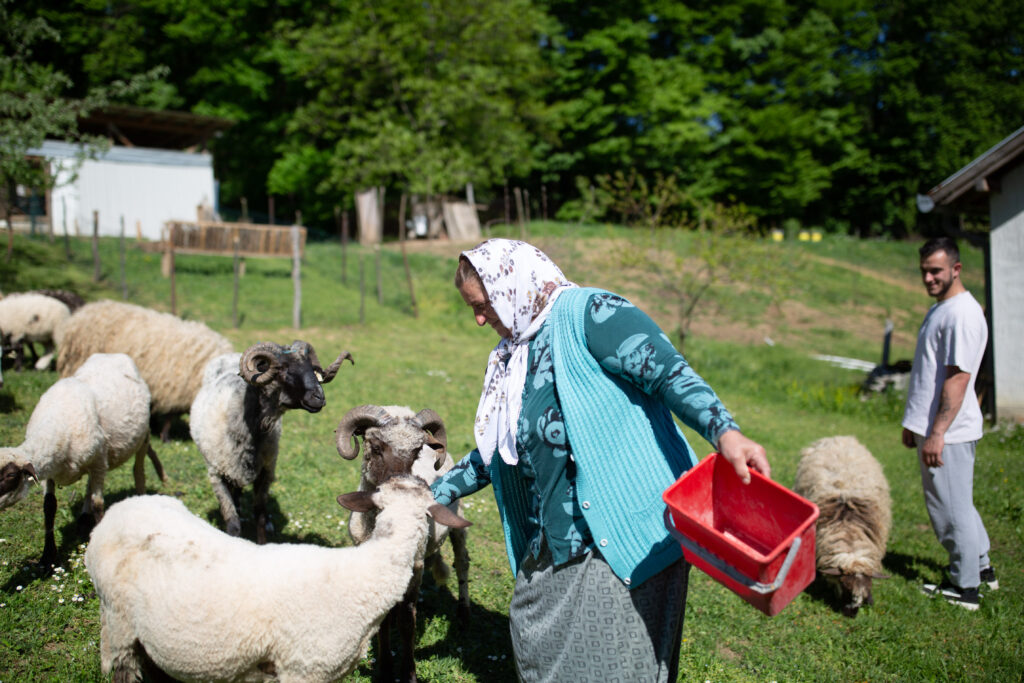
“I’ve already sold 3 qurban [this year], and I’ll sell 3 more,” she says. “That gives me a bit of budget, a better income, so that’s what I do now.”
Islamic Relief also gave Umija a greenhouse, enabling her to grow and sell vegetables, but farming hasn’t been easy.
“As long as I worked, and as long as I could sell peppers and tomatoes, maintain things and earn money, I managed. But last year there was a snow that destroyed everything. So now I am looking for [a workman] to build a new greenhouse… As long as I’m alive, I won’t go without a greenhouse. But now, since we have sheep, that brings even more income to live on.
“I thank Allah and all the people who helped me… I received help from other organisations too… [and] I pray God rewards them threefold. Without all that help, I wouldn’t have managed to get what I have now. I really fought hard for everything [I have].”

